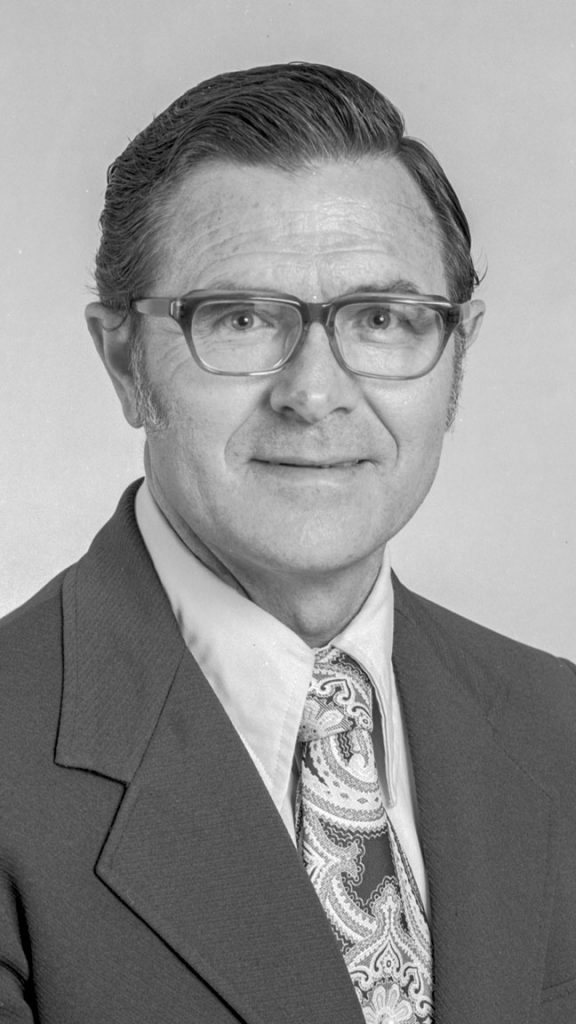 Every week a small group of World War II and Korea veterans meet in Wesson, Miss., to drink coffee, maybe eat lunch, swap stories and remember comrades who died. But Ralph Calcote no longer dons his red shirt and joins the Greatest Generation Coffee Club. Ralph died May 9 at age 95.
Every week a small group of World War II and Korea veterans meet in Wesson, Miss., to drink coffee, maybe eat lunch, swap stories and remember comrades who died. But Ralph Calcote no longer dons his red shirt and joins the Greatest Generation Coffee Club. Ralph died May 9 at age 95.
Calcote’s story isn’t quite like the others’. He tried to serve in World War II but was turned down because of poor eyesight. When the war ended and qualifications were lowered, Calcote was accepted into the Navy. He served nine months, most of them as a draftsman in Washington, D.C.
When he did go overseas in 1951, Calcote, his wife, Gena, and their young son Stuart went in peace — as Southern Baptist missionaries to America’s former enemy, Japan.
It was during the war, while working as an engineer for General Electric in Syracuse, N.C., that Calcote felt called to foreign missions. When he left the Navy, he entered The Southern Baptist Theological Seminary, Louisville, Ky., where he met his future wife, Gena Wall, a student at the Woman’s Missionary Union Training School.
Goal of 100
After seminary, Calcote was called as pastor of Jenkins Memorial Baptist Church in St. Martinville, La.
The Southern Baptist Foreign Mission Board (now International Mission Board) had set a goal of sending 100 missionaries to Japan as soon as possible after the war. When the Calcotes sailed with seven other missionaries on the SS President Cleveland in August 1951, the goal was drawing near.
In mid-1953, the Calcotes wrote that they were rejoicing in the appointment of the 100th missionaries to Japan. “Number 100 seems to be concrete proof that Southern Baptists will fulfill their promise to the Lord of advance into all the world with the Gospel message of the Lord Jesus Christ,” they wrote.
When they first arrived in Tokyo, the Calcotes said they were surprised to see how much of Tokyo had been destroyed during the war. “Huge smoke stacks stand all over the city as monuments of the destruction which comes with war,” they wrote in a newsletter to friends at home.
“On the sites of the destruction have been built many small shacks and business places. Except for a few places, Tokyo is not a beautiful city,” they wrote.
But Tokyo was where they would stay for two years of language study before moving to other areas to work in evangelism and church planting.
Their first Sunday in Japan, the Calcotes attended a church which had been organized more than a year earlier. It had 119 members, but 300 in attendance that Sunday. That evening, Calcote preached his first sermon in Japan.
During language study, Calcote taught a Bible class in a toothpaste factory after the workday ended on Saturdays. “I assure you that I leave that class feeling better than I do when I enter,” wrote Calcote in a newsletter. That evening, the class had presented him with a sample of their products: a half dozen toothbrushes and a carton of toothpaste.
‘All needing the Savior’
After language school, the Calcotes were assigned to northern Kyushu island, a large coal-mining area where they were to strengthen existing churches and start new ones.
As they became accustomed to Japanese customs, the Calcotes also noticed a change in how they saw the Japanese people. “At first people all seemed the same to us,” Calcote wrote in a newsletter in late 1952. “Now they are individuals, all different, all needing the same Savior.”
“Baptists are still few in Japan and growth is not a fast thing,” wrote Calcote in the same letter, “but Japan Baptists are definitely moving, increasing in faith, in strength, and in numbers. We have churches or mission points all the way from Hokkaido in the north to the tip end of Kyushu in the south and are steadily growing in our efforts to win Japan for the Lord.”
At the time, Japan was home to 53 Baptist churches, and 53 young men were attending the Baptist seminary at Fukuoka, preparing for the ministry.
Calcote and his late wife, Gena, were to serve 35 years, almost of all them doing evangelistic work in various places in Japan: Kokura, Yahata (later part of Kitakyushu), Nagoya, Tokyo and Fukuoka. They saw four of their five children born in the country.
Calcote graduated from Mississippi State University, The Southern Baptist seminary, and Southeastern Baptist Theological Seminary, Wake Forest, N.C.
After retiring from overseas missions, Calcote served as the hospice chaplain for Hospice Ministries and as chaplain for King’s Daughters Hospital in Brookhaven, Miss.
He is survived by five children: Stuart (Tanya), Cherryl C. Duncan (Gordon), Nancy, Janet C. Simmons (Charles), and Robert W. (Judy); sisters Christine Dickey and Helen Huff; 12 grandchildren; seven great-grandchildren; and four stepchildren.
Read an obituary here.

